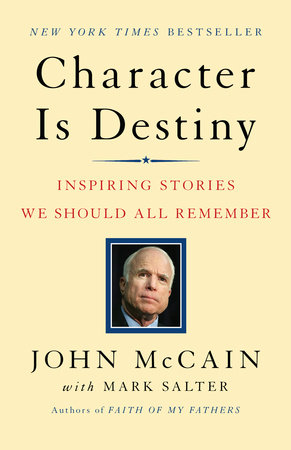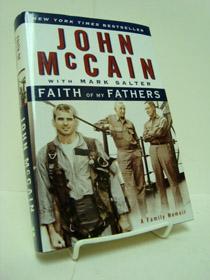Fifth from the Bottom
I am sure my disdainful contemporaries and disapproving instructors believed I would become a thoroughly disreputable upperclassman were I somehow to escape expulsion during my plebe year. Most of the time, my behavior only confirmed their low regard for me. For a moment, though, I came close to confounding their expectations. That moment began when I boarded the USS Hunt to begin my first-class cruise to Rio de Janeiro in June of 1957.
The Hunt was an old destroyer. It had seen better days. It seemed to me a barely floating rust bucket that should have been scrapped years before, unfit even for mothballing. But I was ignorant, a sailor's son though I was, and I overlooked the old ship's grace and sea-worthiness. I assumed the Hunt was suitable only for the mean task of giving lowly midshipmen a rustic experience of life at sea. I was wrong.
We lived in cramped quarters in the aft of the ship. We kept the hatch open to cool our quarters with the breeze blowing off the Chesapeake Bay. Once the Hunt left the bay and entered the Atlantic, the seas grew heavier and seawater washed in through the hatch. We lived in the pooled water for several days. The rough seas sent a good number of us running for the lee side to vomit. We had restricted water hours on the cruise, which meant there was only enough water to allow us to drink from the ship's water fountains during a three-hour period every day. We took saltwater showers.
We spent a third of the cruise in the engineering plant, a grim place that seemed, to the untrained eye, a disgrace. The boilers blew scorching hot air on us while we spent long hours in misery learning the mysteries of the ship's mechanics. That the ship sailed at all seemed to us a great testament to the mechanic's mates' mastery of improvisation. It was a hell of a vessel to go to sea in for the first time.
We spent another third of the cruise learning ship's navigation, and the last third on the bridge learning how to command a ship at sea.
The skipper was Lieutenant Commander Eugene Ferrell. He seemed to accord the Hunt affection far out of proportion to her virtues. More surprisingly, he seemed to have some affection for me. He expressed it in eccentric ways, but I sensed his respect for me was greater than I had lately been accustomed to receiving from officers. I appreciated it, and I liked him a lot.
I spent much of the cruise on the bridge, where the skipper would order me to take the conn. There is a real mental challenge to running a ship of that size, and I had little practical experience in the job. But I truly enjoyed it. I made more than a few mistakes, and every time I screwed up, the skipper would explode, letting loose an impressive blast of profane derision.
'Dammit, McCain, you useless bastard. Give up the conn right now. Get the hell off my bridge. I mean it, goddammit. I won't have a worthless s.o.b. at the helm of my ship. You've really screwed up this time, McCain. Get the hell out of here!'
As I began to skulk off the bridge, he would call me back. 'Hold on a second. Come on back here, mister. Get over here and take the conn.' And then he would begin, more calmly, to explain what I had done wrong and how the task was done properly. We would go along pleasantly until I committed my next unpardonable error, when he would unleash another string of salty oaths in despair over my unfitness for the service, only to beckon me back for a last chance to prove myself worthy of his fine ship.
It was a wonderful time. I enjoyed the whole experience. As I detected in Ferrell's outbursts his sense that I showed some promise, I worked hard not to disappoint him, and I learned the job passably well. I was rarely off his bridge for much of the cruise. No other midshipman on the Hunt was so privileged.
Directed by Peter Markle. With Shawn Hatosy, Cary-Hiroyuki Tagawa, Joe Chrest, Chi Muoi Lo. The story of John McCain's experience as a Vietnam War POW. Based on the memoir of the same title. 'Faith of My Fathers' by John McCain with Mark Salter is a memoir that highlights John McCain's ancestry, focusing primarily on his grandfather, father, and on his own life. Not glamorizing their existence, this book is a real account of the triumphs and pitfalls of the military men. Faith of My Fathers, by John McCain, John McCain, Tired of media reports of fundraising and poll results instead of policy issues? At OnTheIssues.org, you can see the view of every candidates on every issue. United States Senator John McCain's autobiography, 'Faith of my Fathers', gives readers mostly a military service history of McCain's grandfather, father and himself.
John Mccain Book Faith Of My Fathers

John McCain has 67 books on Goodreads with 34366 ratings. John McCain’s most popular book is Faith of My Fathers: A Family Memoir.

John Mccain Faith Of My Fathers Pdf


John Mccain Movie Faith Of My Fathers
Excerpted from Faith of My Fathers by John McCain with Mark Salter. Copyright© 1999 by John McCain. Excerpted by permission of Random House, a division of Random House, Inc. All rights reserved. No part of this excerpt may be reproduced or reprinted without permission in writing from the publisher.
[Before being captured in Vietnam], I thought glory was the object of war, and all glory was self-glory. No more. For I have learned the truth: there are greater pursuits than self-seeking. Glory is not a conceit. It is not a prize for being the most clever, the strongest, or the boldest. Glory belongs to the act of being constant to something greater than yourself, to a cause, to your principles, to the people on whom you rely, and who rely on you in return. No misfortune, no injury, no humiliation can destroy it. This is the faith that my commanders affirmed, that my brothers-in-arms encouraged my allegiance to. It was the faith I had unknowingly embraced at the Naval Academy. It was my father's and grandfather's faith. A filthy, crippled, broken man, all I had left of my dignity was the faith of my fathers. It was enough. This is the faith that my commanders affirmed, that my brothers-in-arms encouraged my allegiance to. It was the faith I had unknowingly embraced at the Naval Academy. It was my father's and grandfather's faith. A filthy, crippled, broken man, all I had left of my dignity was the faith of my fathers. It was enough. |
